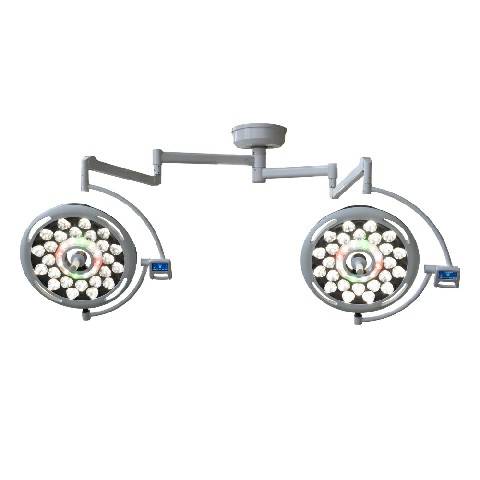Address
304 North Cardinal St.
Dorchester Center, MA 02124
Work Hours
Monday to Friday: 7AM - 7PM
Weekend: 10AM - 5PM
Welcome to My Blog!
Before we dive into the content, I’d love for you to join me on my social media platforms where I share more insights, engage with the community, and post updates. Here’s how you can connect with me:
Facebook:https://www.facebook.com/profile.php?id=100071234835011
LinkedIn:https://www.linkedin.com/company/74943205/admin/dashboard/
YouTube:www.youtube.com/@shandongexpertmedicalequip4695
TikTok:www.tiktok.com/@expertmedical
Now, let’s get started on our journey together. I hope you find the content here insightful, engaging, and valuable.


Surgical procedures demand precision, clarity, and efficiency. One of the most critical elements that contribute to these requirements is the surgical operating room lights. Designed to illuminate the surgical field with optimal brightness and minimal shadow interference, these lights are indispensable in operating rooms. In this comprehensive guide, we explore the essential features, benefits, and advancements of surgical operating room lights, ensuring you have a thorough understanding of their significance in modern healthcare.
Proper lighting is essential for surgeons to perform intricate procedures with accuracy. Surgical operating room lights provide high-intensity illumination that minimizes shadows, enhances visibility, and ensures the surgical field is well-lit.
Efficient lighting reduces the chances of errors during surgeries, ensuring better patient outcomes. The precision offered by surgical operating room lights allows for meticulous dissection and suturing, which are critical in complex procedures.
Operating for extended periods can be physically taxing for surgeons. The ergonomic design of modern surgical lights helps reduce eye strain and fatigue, enabling surgeons to focus better on their tasks.









One of the key features of surgical operating room lights is their ability to provide adjustable brightness levels. This ensures that the lighting can be customized based on the procedure’s requirements and the surgeon’s preferences.
Advanced surgical lights are designed to minimize shadows caused by instruments or personnel in the operating room. This ensures uninterrupted illumination of the surgical site, even in complex setups.
A high CRI is crucial for differentiating between tissues and organs. Surgical operating room lights typically have a CRI above 90, which ensures accurate color representation and aids in better diagnosis and treatment.
Modern surgical lights are equipped with heat management systems to prevent overheating. This protects both the surgical team and the patient from discomfort during prolonged procedures.
Surgical lights come with adjustable arms and rotational capabilities, allowing precise positioning to illuminate specific areas. This flexibility is vital for accommodating various surgical techniques.


The introduction of LED technology has revolutionized surgical lighting. LED surgical operating room lights are energy-efficient, long-lasting, and provide consistent illumination with minimal heat emission.
Modern surgical lights can integrate with imaging systems, enabling real-time visualization during procedures. This feature is particularly beneficial in minimally invasive surgeries.
Many surgical lights now feature touchless controls, which help maintain a sterile environment by reducing physical contact with equipment.
Smart surgical lights can adjust brightness and focus automatically based on the surgeon’s movements and the surgical field’s requirements.
| Feature | Traditional Lights | LED Surgical Lights |
|---|---|---|
| Energy Efficiency | Moderate | High |
| Lifespan | Short | Long |
| Heat Emission | High | Minimal |
| Brightness Control | Limited | Advanced |
| Cost-effectiveness | Lower upfront cost | Higher initial cost, but economical in the long run |
Choosing the right lights ensures that the surgical field is illuminated to the highest standards, improving procedural accuracy.
With reduced risks of errors and enhanced visibility, surgical operating room lights contribute to better patient care and faster recovery times.
Though high-quality surgical lights may have a higher upfront cost, their durability and energy efficiency result in long-term savings.
Advanced lighting systems with smart features improve the workflow in operating rooms, ensuring seamless procedures.
The importance of surgical operating room lights in modern healthcare cannot be overstated. These lights are fundamental to successful surgical procedures, contributing to surgeon efficiency, patient safety, and overall procedural outcomes. As technology continues to advance, surgical lights are becoming smarter, more efficient, and tailored to the specific needs of medical professionals. Investing in high-quality surgical lights is an investment in the future of patient care.
Key features include high intensity, adjustable brightness, shadow reduction, high CRI, heat management, and flexible positioning.
LED surgical lights are preferred due to their energy efficiency, long lifespan, minimal heat emission, and superior brightness control.
By providing optimal illumination and minimizing shadows, surgical lights reduce the risk of errors during procedures, ensuring better patient outcomes.
Hospitals should consider factors like brightness levels, energy efficiency, heat emission, integration capabilities, and cost-effectiveness when selecting surgical lights.
Yes, smart surgical lights with advanced features like touchless controls and integration with imaging systems enhance workflow efficiency and long-term cost savings.
